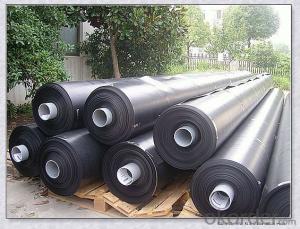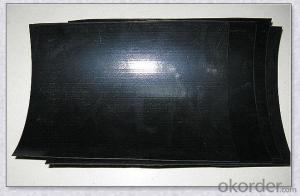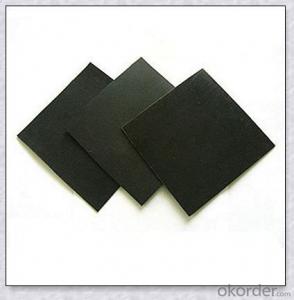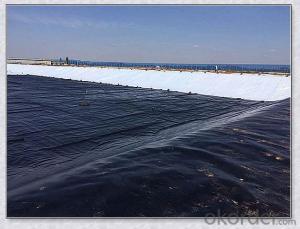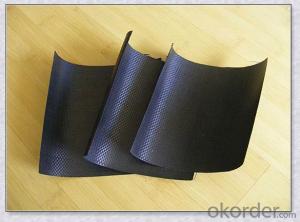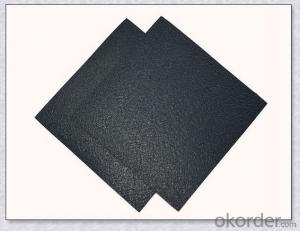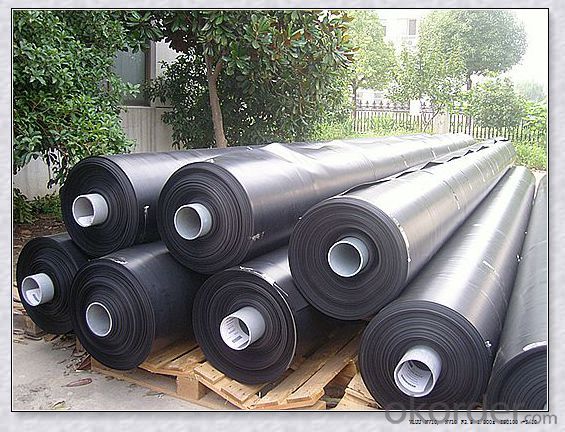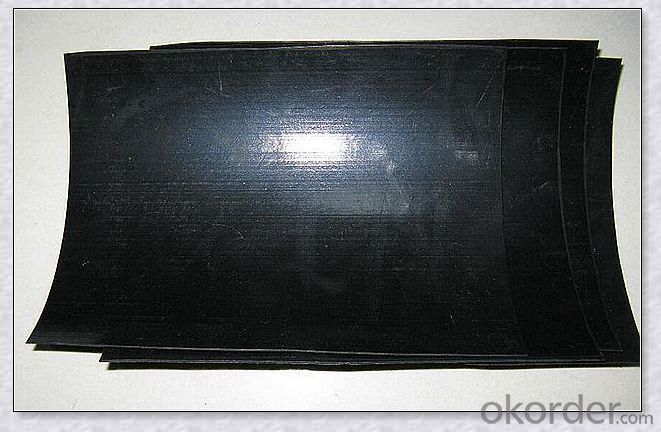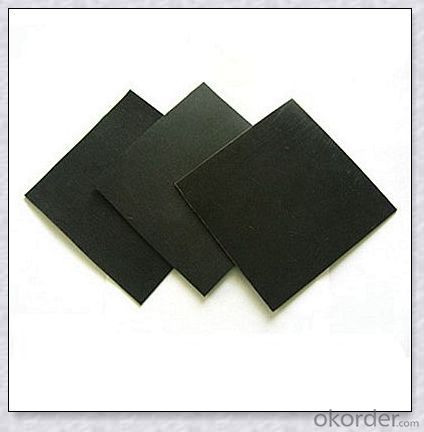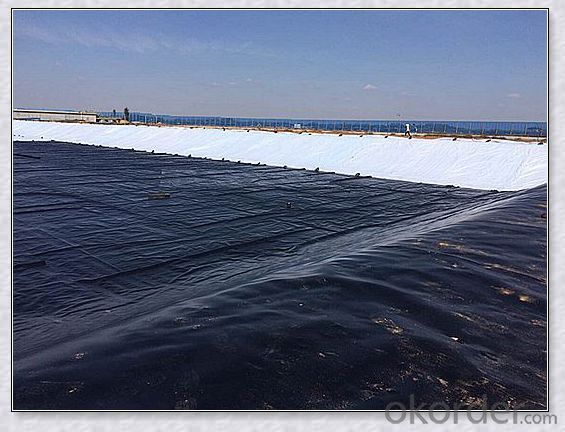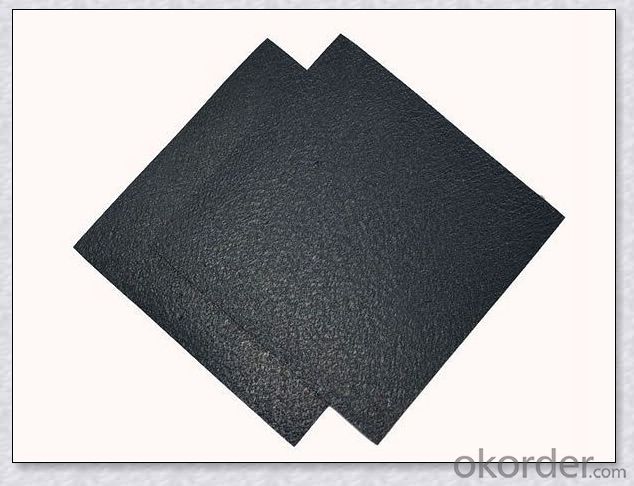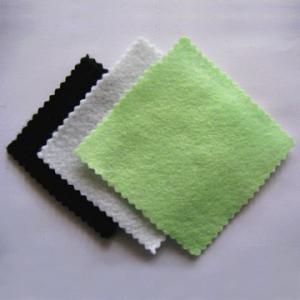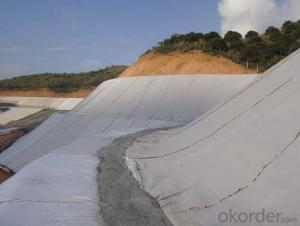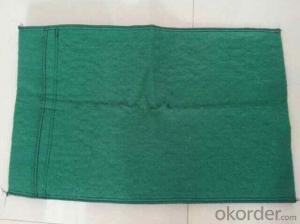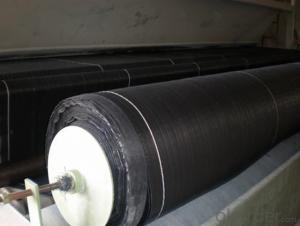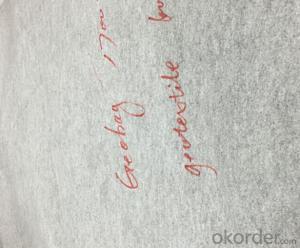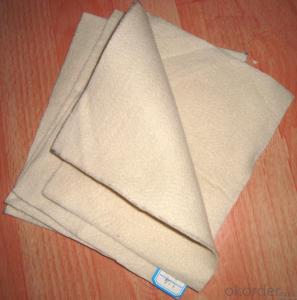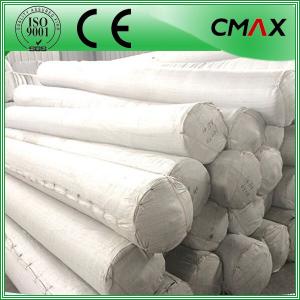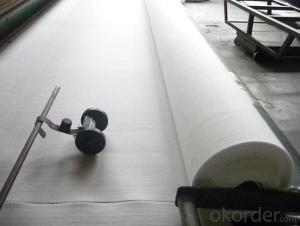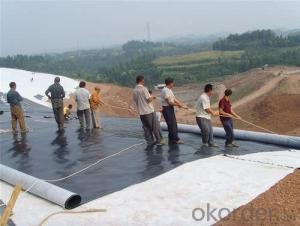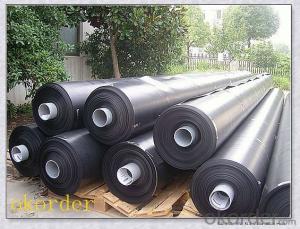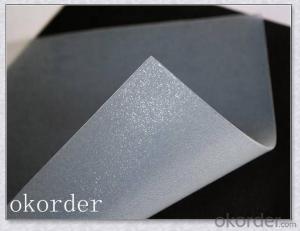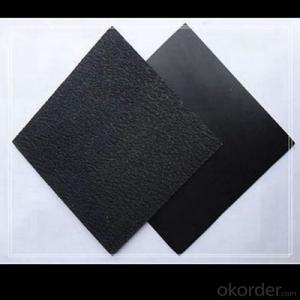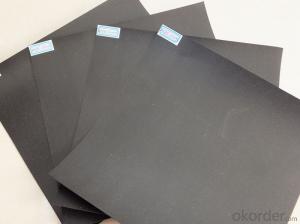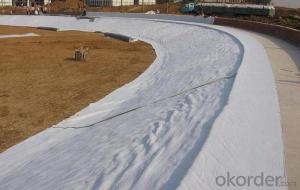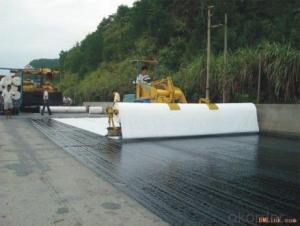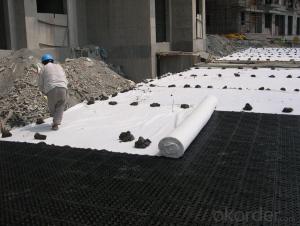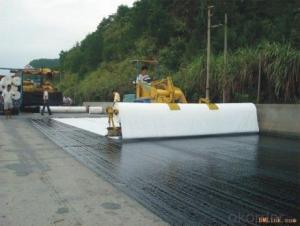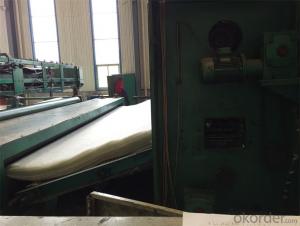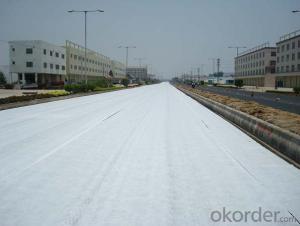Non Woven Geotextile Fabric Manufacturers - Smooth Geotextile Membrane for Sale with Factory Price
- Loading Port:
- China main port
- Payment Terms:
- TT OR LC
- Min Order Qty:
- 1000 m²
- Supply Capability:
- 1000000 m²/month
OKorder Service Pledge
OKorder Financial Service
You Might Also Like
Specification
High-density polyethylene (HDPE), commonly used as a geomembrane and is similar to the material used in black polyethylene pipes. It has a broad chemical resistance and excellent UV resistance; all of them are with ISO certificates and widely accepted in USA, England, Russia, UAE, Mexico and other Asian countries.
Strengths
Environmental Stress & Crack Resistance
Water Resistance
Chemical Resistance
UV and Thermal Weathering Resistance
Conformation to sub-soil movements
Tear Resistance
Puncture Resistance
Repairable
Recyclable
Very low permeability
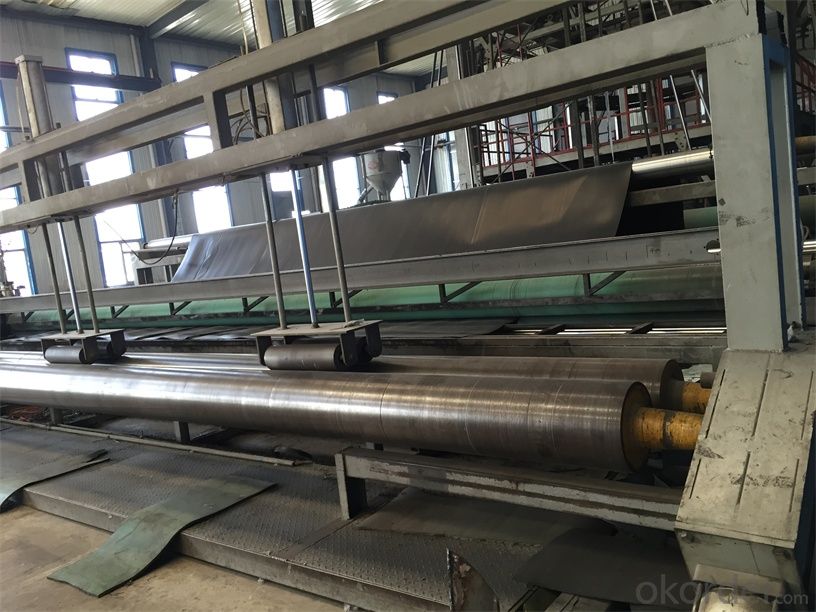
Packaging & Shipping
Packing: PLASTIC FILM INSIDE, AND WOVEN BAG OUTSIDE
Shipping: About 15 days after receipt the deposit
geotextile fabric
permeability,filtration,easy for construction
ISO and CE certificate
Good quality and competitive price
After-sales service
1.In order to provide customers with comprehensive technical support,we will provide technical and other related information upon request in a timely manner.
2.In required,we will appoint specialized technicians to the construction site to give technical trainings to construction people,and offer technical guidance throughout the whole construction process.
3.For damage due to shipment and delivery,after we receive the complaint,we will check the issure through provided pictures and videos.If our responsibility is confirmed,we wil offer free replacement.
4.When the construction is completed,as your request,our technical staff may participate in the final acceptance.
FAQ:
Q: What kind of payments does jenor support?
A: T/T, L/C, Cash are accepted.
Q: Do you charge for the samples?
A: Accordeing to our company policy, the samples are free, we only charge the freight fee. And we will return the freight fee during the next order.
Q: Can you produce according to customers' design?
A: Sure, we are professional manufacturer, OEM and ODM are both welcome.
Q: Do you have other products?
A: Yes, please check the pictures:
- Q: Can geotextiles be used in groundwater control?
- Yes, geotextiles can be used in groundwater control. They are commonly employed as part of drainage systems to filter and separate different layers of soil, preventing the clogging and migration of fine particles. Geotextiles can also be used in conjunction with geosynthetics to create impermeable barriers, preventing the seepage or flow of groundwater in certain applications.
- Q: How can the geotextile extension of 65 to do the following
- I professional production geotextile geomembrane and other geotechnical materials, wish smooth
- Q: Can geotextiles be used in sports field construction?
- Yes, geotextiles can be used in sports field construction. Geotextiles are commonly used as a part of the base and drainage system in sports field construction to prevent soil erosion, improve stability, and enhance the overall performance and durability of the field.
- Q: What are the different factors to consider for geotextile selection in mining applications?
- When selecting a geotextile for mining applications, various factors need to be considered. These include the required strength and durability of the geotextile, its ability to withstand harsh environmental conditions, its resistance to chemicals and contaminants present in the mining environment, its filtration and drainage properties, as well as its compatibility with other materials used in the mining process. Additionally, factors such as the cost-effectiveness and availability of the geotextile should also be taken into account.
- Q: How are geotextiles different from other geosynthetic materials?
- Geotextiles are a type of geosynthetic material that is specifically designed to provide filtration, separation, and reinforcement functions in civil engineering projects. Unlike other geosynthetic materials such as geogrids or geomembranes, geotextiles are primarily used for their filtration properties, allowing water to pass through while retaining soil particles. They are typically made from synthetic fibers, which give them high tensile strength and durability. Overall, geotextiles serve a distinct purpose within geosynthetic materials, focusing on filtration and soil stabilization applications.
- Q: How do geotextiles help with subgrade separation in pavement systems?
- Geotextiles help with subgrade separation in pavement systems by acting as a barrier between the subgrade soil and the overlying base and subbase layers. They prevent the mixing of these layers, which can lead to contamination and reduced structural integrity of the pavement. Additionally, geotextiles enhance the load distribution and drainage capabilities of the pavement system, improving its overall performance and longevity.
- Q: What are the key considerations for geotextile installation in seismic retrofitting projects?
- Some key considerations for geotextile installation in seismic retrofitting projects include selecting the appropriate type and strength of geotextile material, ensuring proper placement and anchoring of the geotextile, evaluating the stability and drainage requirements of the site, and considering the compatibility of the geotextile with other materials and construction methods used in the retrofitting project. Additionally, careful attention should be given to the design and installation of the geotextile to ensure it effectively enhances the overall stability and performance of the structure during seismic events.
- Q: Are geotextiles suitable for use in contaminated soil remediation projects?
- Yes, geotextiles are suitable for use in contaminated soil remediation projects. Geotextiles have been proven to be effective in separating and stabilizing soil layers, preventing soil erosion, and controlling sedimentation. They can also act as a barrier to prevent the spread of contaminants, while allowing for proper drainage and filtration. Additionally, geotextiles are durable, cost-effective, and environmentally friendly, making them a suitable choice for remediation projects.
- Q: What are the factors to consider when designing geotextile-reinforced slopes?
- When designing geotextile-reinforced slopes, several factors need to be considered. These factors include the type and strength of the soil, the slope angle, the water conditions, the expected load and stress on the slope, the desired vegetation cover, and the available space for construction. Additionally, the design should account for the potential for erosion and the need for drainage to prevent water buildup. The selection of appropriate geotextile materials and installation techniques is also crucial for ensuring long-term stability and effectiveness of the reinforced slope.
- Q: What are the limitations of geotextiles?
- Geotextiles have certain limitations that need to be considered. Firstly, they are not suitable for high load-bearing applications and may require additional reinforcement. Secondly, they may degrade over time due to exposure to UV radiation, leading to a decrease in their effectiveness. Additionally, geotextiles may not be effective in controlling fine particles or preventing the growth of vegetation in certain scenarios. Lastly, they may be susceptible to damage during installation or due to punctures and tearing, requiring careful handling.
Send your message to us
Non Woven Geotextile Fabric Manufacturers - Smooth Geotextile Membrane for Sale with Factory Price
- Loading Port:
- China main port
- Payment Terms:
- TT OR LC
- Min Order Qty:
- 1000 m²
- Supply Capability:
- 1000000 m²/month
OKorder Service Pledge
OKorder Financial Service
Similar products
Hot products
Hot Searches
Related keywords
